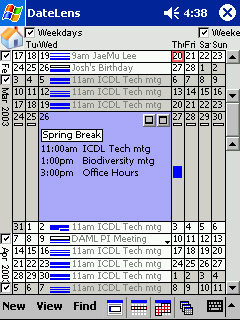The Curious Cook: Taking the Lid Off Kitchen Facts and Fallacies, Harold McGee, 1990.
There's a kind of spectrum of tasks, at one end of which are those things you learn by doing, and the other end those things you learn by studying. We might learn history in books, but our knowledge of cooking is, by and large, firmly placed over the kitchen stove.
It's not hard to see why. Over many generations and millennia, people have figured out what works and what doesn't. In a continuing cycle, most of us learn from a parent or relative or from some cookbook, in a process of imitation, which gives way to an intuitive understanding of what works and what doesn't, and on and on from generation to generation.
Our understanding of cooking is on an intuitive, functional level. We can understand that adding a bit of salt will enhance the flavours, and we know roughly how much salt is required to do this - and how much would make the dish unpalatable. Which seems fair, for if we were to get an understanding at the next level down, we'd be getting into the realms of chemistry. And at this level, things get pretty damn complex!
It would seem that you'd have to know a hell of a lot about the chemistry, the structure of the cooking materials, how they combine and interact in the process of cooking in order to improve upon the millennia of trial and error experience and incremental improvement!
It is in this context that Harold McGee's "The Curious Cook", aimed at the lay reader, successfully brings to bear some understanding of underlying science onto various matters food. The result of this rare combination is interesting, informative and a pleasure to read - and it shows that a deeper understanding can sometimes be very useful. McGee not only knows his science, he also knows how to write in a clear and entertaining manner.
The book is organised as a collection of essays split over three sections. The first covers some kitchen experimentation to uncover the truth behind some kitchen lore, and to troubleshoot some common problems, such as how to keep salads green and fresh. The second looks at matters of health, covering the role of food in heart disease and cancer, and what part aluminum might play in Alzheimer's. The third entails some miscellaneous reflections relating to science and food.
In the first section we learn such things as why searing meat doesn't really seal in the juices, why bleurre blanc is so simple yet other similar sauces are so complex, a simple way of making mayonnaise, and simple formulas for getting the right proportions of ingredients for making various different types of water ices (something that you won't be able to find elsewhere).
As you've probably sensed from that list, the range of topics he covers is fairly eclectic, and, speaking as someone who's more interested in Indian and Asian cooking, it's also oriented towards European food. But even so, it's fascinating stuff, and a lot of it reads more like a mystery novel than a science text or cookbook. He'll have a promising lead, go down the path of exploring it, only to discover it was a red herring, and off he'll go on another lead.
One thing I found quite surprising was how wrong certain kitchen lore was, and how easy it was for him to systematically check it out using a simple kitchen set up (as opposed to an industrial lab and equipment). Like searing meat to seal in the juices - it makes intuitive sense, but if you actually check it out, it doesn't make any difference at all. Yet it's common lore that's been handed down and accepted from generation to generation. The only benefit seems to be that the searing helps to initially brown the meat.
The second section moves from food and cooking to its effects on our health. Specifically, he covers heart disease, cancer, and the potential link between aluminum and Alzheimer's. I'm a bit squeamish about these kinds of things, but I actually found these chapters more interesting than anything else. It's fascinating, and at the same time kinda mellowing, to realise that heart disease and cancer are more the result of imperfections in our body's functioning than anything else - for example, most carcinogens are do not themselves cause cancer, but are turned into things which cause cancer by our own bodies.
Most popular treatments of these issues often talk in very simplified and vague terms, and I thought this section really helped you understand the issues by giving you an account of what's actually going on in the body. In particular, the description of heart disease was very nicely written.
While he attempts to summarise the current scientific understanding of these matters, it's worth noting that the book is close to 15 years now, and I wonder how much things have moved on since then. In any case, I expect the understanding of the fundamentals he presents is unlikely to be much changed.
The third and final section is a scattered collection of three essays related to science and food. The first two are historical in nature, one talking about Brillat Savarin (remembered for a handful of epigrams, such as "Tell me what you eat, and I will tell you what you are"), who was one of the first to foray into the world of food and science, and the other chronicling the history of the substance Osmazome, which people once thought contained the essence of the flavour of meat. The final essay reports recent research findings that shed light on why we find the flavours of cooked food so desirable (while most animals, and indeed our predecessors, don't).
Entertaining, practical, informative and unique - The Curious Cook is well worth a look.









